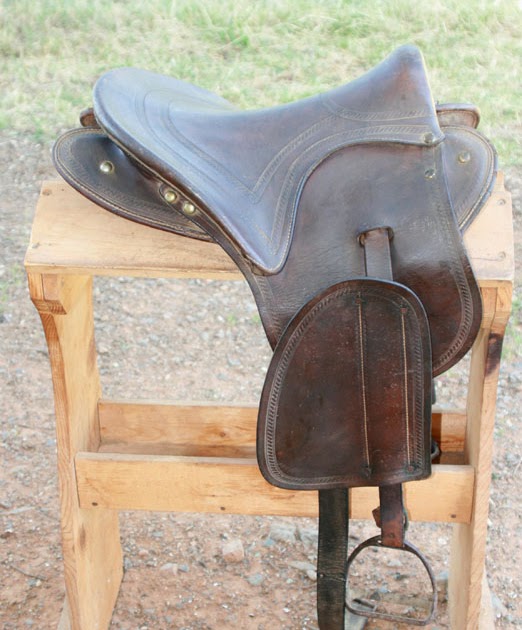Not sure why you think I’m interested in you personally because I am not. You are also irrelevant to me. It’s just that you keep popping up with negative comments on an other wise informative and interesting thread. Yes, I have heard the use of the word cracker. Cracker is a white racial slur. I’m not offended.
Returning to the original topic of western saddles and dressage, has anyone tried the Bent Branderup “schulesattel”? Putting aside the whole academic riding thing, the saddle itself is interesting, and has more in common with a western saddle or a Spanish Doma vaquero saddle than a traditional dressage saddle.
There is a breed called the Florida Cracker.
You are best to not just assume.
Yikes. I don’t think my horse would like that skinny girth strap. I’m a good rider but not good enough to stay on that thing if my horse spooked. Lol
Well now I’ve gone down the rabbit hole of academic riding saddles. Holy wow there’s a lot of choices. The La Selle saddlery has all different kinds: everything from the very baroque looking to more dressage-like. The tree is made of leather and more flexible than a normal tree, though they do have gullet plates. And they can customize the tree flexibility for you. And they have a billeting system that is like a V, with attachments at the front and back of the tree, but not on the tree points. Fascinating.
There’s a cow breed called Cracker too. They were being discussed on the farm forum.
As a general point, lots of slurs started out as casual words indicating regional, class, national, or ethnic identity, or indeed gender. They become slurs during periods of social conflict. They may be slurs in one part of the world, and not in another. Slang of this sort is very mobile in meaning and very contextual.
As an example, think about how the word “Okie” became a very derogatory word in California during the dust bowl migrations in the 1930s, when towns did not want them settling there. I don’t think it’s in the current dictionary of slurs, and it would never be a slur inside Oklahoma obviously.
Yes, there’s all sorts of hybrid saddles out there, especially as the Doma Vaquero Spanish or Portuguese saddle is still commonly used and in production in the Iberian peninsula.
For North American riders there is always a question of whether a given saddle is dressage legal. I know that you cannot use a saddle with the extended pommel swell, can’t recall the name in Spanish, its like the “polleys” on an Australian saddle.
This discussion has been so interesting!
What about a plantation like below (with the fenders removed). Western style tree for weight distribution but with a bit more of an English design?
Interesting! It does look like it would put you behind the motion, gaited riders like that, might not be optimal for dressage.
It would be very interesting to see what the TD thought of that!
Agree. Stirrups and deepest part of the seat are too far apart.
The TD would probably think that the person presenting in such a saddle had not bothered to read the rule book.
There’s a great documentary, “Florida Crackers: The Cattlemen and Cowboys of Florida.” If you Google the name, you can find some clips on YouTube.
Most people have no idea that Florida not only has a long history of cattle ranching and cattle production, but that it’s still home to some of the biggest cow-calf operations in the US.
There’s also a great book: “Florida Cowboys: Keepers of the Last Frontier.” I wrote a review of it right after it was released. I loaned my copy to someone and never got it back.  LOL, I had completely forgotten about that until I started writing this post.
LOL, I had completely forgotten about that until I started writing this post.
I had one similar I used to take dressage lessons in. Mine was a bit different as my stirrup bars were further back. My instructor said it put me in a great position. I loved that saddle and how it rode. To bad my hony outgrew it.
Regarding the origin of the word “cracker”
Turns out that, as usual, everyone’s got a little piece of the story.
There’s a saying that there are only 2 types of fools; those that lend books and those that return them …
Donalyn Miller:
Henry Miller:
Jules Verne:
Christopher Paolini:
That’s very similar to the Hidalgo saddle I’m currently test riding in (which is super comfortable). https://hidalgo-sattel.com/en/product/sanlucar/
These are very traditional Spanish saddles in style. They have a v-girthing system and use a traditional dressage girth. I’d love a true doma vaquera saddle but it doesn’t make sense to invest the whole way until my guy is further along (we are also doing working equitation). I don’t think I’d take it to a dressage show though!
Yes! I was just reading a history book on the origins of our cowboys and it started with Spaniards landing in Florida according to this author.
Referencing the historic aspect of using whips to drive cattle. Please note my reference replying to the comment about American Cowboys using lassos vs the garrocha pole. Also, while the term “cracker” definitely has negative connotations when used in some ways, many of the old families of Florida claim it with honor. COntext is everything.
And as to slaves, really??? Why go there???

